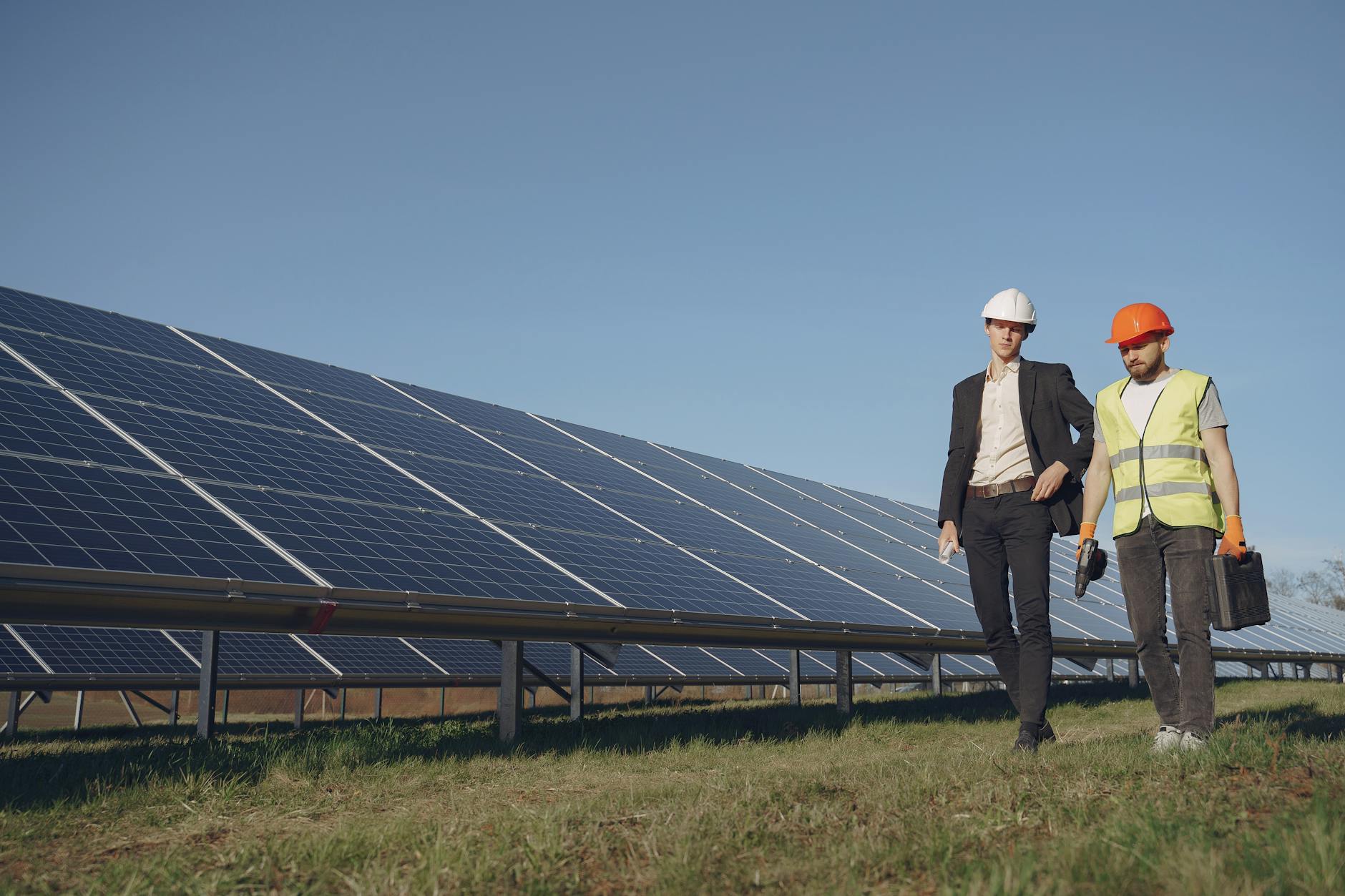How to Elevate Your Eco-Friendly Brand with SEO in Australia

Crafting Eco-Friendly Content
Creating eco-friendly content is about appealing to eco-conscious audiences like those you might meet at Salamanca Market's eco-village. A well-rounded strategy starts with understanding your audience's sustainability values. It's vital to incorporate sustainable living references, ensuring your content is as authentic as the craftsmanship found at the local market.
Developing Green Content Strategies
Crafting an engaging strategy involves aligning your content with community-centric values. Use inspiring stories and practical tips about sustainable living to connect with your audience. Discussing eco-friendly practices, like sourcing materials with minimal environmental impact, can be instrumental.
Sustainable Keyword Research Techniques
Focusing on long tail keywords can help you stand out in the crowded online space. These keywords are more specific and attract quality traffic, reflecting the unique ethos of your eco-friendly brand. Remember, selecting keywords that resonate with sustainability will naturally drive the right audience to your content.
Engaging Eco-Aware Audiences
Engagement is key, and it happens through understanding what your audience values. Utilise interactive content that empowers readers, like ‘how to do an seo audit’ tailored for sustainability topics. This gives your audience the knowledge they need to make informed decisions, fostering trust and loyalty.
Finally, consider connecting with an SEO agency darwin that understands the importance of maintaining authenticity while expanding your reach. This partnership can help ensure your online presence stays true to your brand’s values.
Enhancing Local SEO
Harnessing local SEO effectively is essential for businesses rooted in sustainability. With such a focus, customers in Australia, especially those around Hobart, can more easily discover content aligned with environmentally conscious values. When working with a proficient digital marketing agency, it's vital to note that they can optimise your site to cater to Australian search engines uniquely. This approach ensures that your eco-friendly ethos isn't lost in translation across different regions.
Local engagement also plays a big part in enhancing visibility. By prioritising connections with local eco-initiatives, such as those thriving at Salamanca Market’s eco-village, you can cement your presence not just online but within the community as well.
Consider Google My Business. It's an essential tool for anyone looking to boost their eco-business standing in the local market. Creating a comprehensive profile allows you to manage your online presence across Google’s search and maps tools. This can offer an authentic glimpse into your sustainable practices, drawing in individuals with similar interests.
Enlisting the expertise of an SEO agency Perth or similar ensures that while improving visibility, there's no compromise on sustainability values. Aligning SEO strategies with innovations from nearby landmarks, like the University of Tasmania’s innovation labs, guarantees an authentic experience for both existing and new customers. Such a strategic approach balances digital outreach with deep-rooted community values, empowering you to be a leader in sustainable business practice.
Building Quality Green Backlinks
Crafting meaningful backlinks is essential for sustainable digital growth and connecting with Australia's environmentally conscious audiences. One effective method is to source links from eco-friendly sites that align with your brand's ethos. Consider reaching out to platforms that focus on sustainability, similar to Salamanca Market's eco-village, where authenticity and community engagement are central. Engaging in collaborations with such sites can significantly enhance your visibility and credibility—something a skilled seo agency hobart can help you achieve through targeted outreach and strategy.
Working alongside Australian influencers who champion renewable practices presents another opportunity. Partnering with these advocates allows you to tap into their established networks, amplifying your message and further rooting your brand in the local eco-conscious community. Ensure these partnerships remain genuine by selecting influencers who share your passion for green living and social impact.
In addition to influencer collaborations, utilising local eco-directories is a practical strategy. These directories often focus on sustainability, guiding user choices about environmentally positive businesses. By listing your store on these platforms, you can increase both your online reach and direct green-oriented traffic to your site. Partnering with an seo agency adelaide can further enhance your visibility on these directories, ensuring your business stands out to eco-conscious consumers. This not only supports your market expansion goals but also solidifies your position as a forward-thinking, sustainable business in the eyes of your audience.
Improving User Experience
Eco-Friendly Web Design Principles
In my journey to merge eco-conscious values with digital presence, I've discovered the vital role of eco-friendly web design principles. A website designed with sustainability in mind not only reflects a green ethos but also enhances overall ux seo. One effective approach is to streamline images and multimedia to reduce load times, which conserves energy and offers a cleaner browsing experience. Implementing sustainable tech solutions like green hosting providers further aligns with our commitment to eco-friendliness. By focusing on user-centric layouts, we can improve customer engagement and our standing in search results.
Mobile Optimisation for Sustainability
Mobile optimisation is crucial in today's climate as more users access sites via smartphones. Designing mobile-friendly pages reduces resource consumption, ensuring that your platform is lean and green. Adaptive design means removing excess elements, reducing reliance on bandwidth-heavy resources, and creating a seamless user experience that prioritises sustainability. This approach not only aids in your site's performance but also in appealing to eco-conscious individuals committed to sustainable practices.
Streamlining Navigation for User Engagement
Efficient navigation on your site fosters a more engaging user experience while reducing unnecessary clicks that waste both time and energy. A well-structured menu and intuitive design ensure your audience can effortlessly explore content, marrying ease of use with sustainability goals. Moreover, simplified site architecture aids in distinguishing between seo vs ppc opportunities, helping streamline efforts in reaching wider eco-conscious audiences effectively and responsibly.
Overcoming Common Mistakes in Eco-Friendly Practices
Avoiding Greenwashing Traps
As we journey towards sustainability, let's ensure our actions and content genuinely reflect eco-friendly values. One prevalent pitfall is greenwashing, where businesses falsely promote environmental consciousness. To sidestep this, rely on transparent communication and authentic eco-friendly initiatives. Instead of empty claims, utilise tangible evidence of your sustainable efforts, like partnerships with community projects in Salamanca Market’s eco-village.
Seizing Local SEO Opportunities
Failing to tap into local SEO opportunities can limit your reach within the vibrant Tasmanian community. Optimise for Australian search engines and engage with grassroots movements. Connect with the sustainability hub at Battery Point or collaborate with the University of Tasmania’s innovation labs to enrich your digital presence. Moreover, ensure your details are accurate on platforms like Google My Business to strengthen your local SEO footprint, making your eco-friendly services more accessible to local audiences.
Prioritising User Needs in Mobile Design
In our commitment to eco-friendly digital practices, overlooking user needs on mobile platforms can deter engagement. Embrace principles of eco-friendly web design to provide a seamless user experience. Ensure mobile optimisation aligns with sustainability goals, focusing on streamlined navigation and swift load times. By doing so, you'll not only enhance user satisfaction but also reduce energy consumption associated with prolonged digital interactions. Address these challenges head-on and watch your sustainable initiatives thrive.


